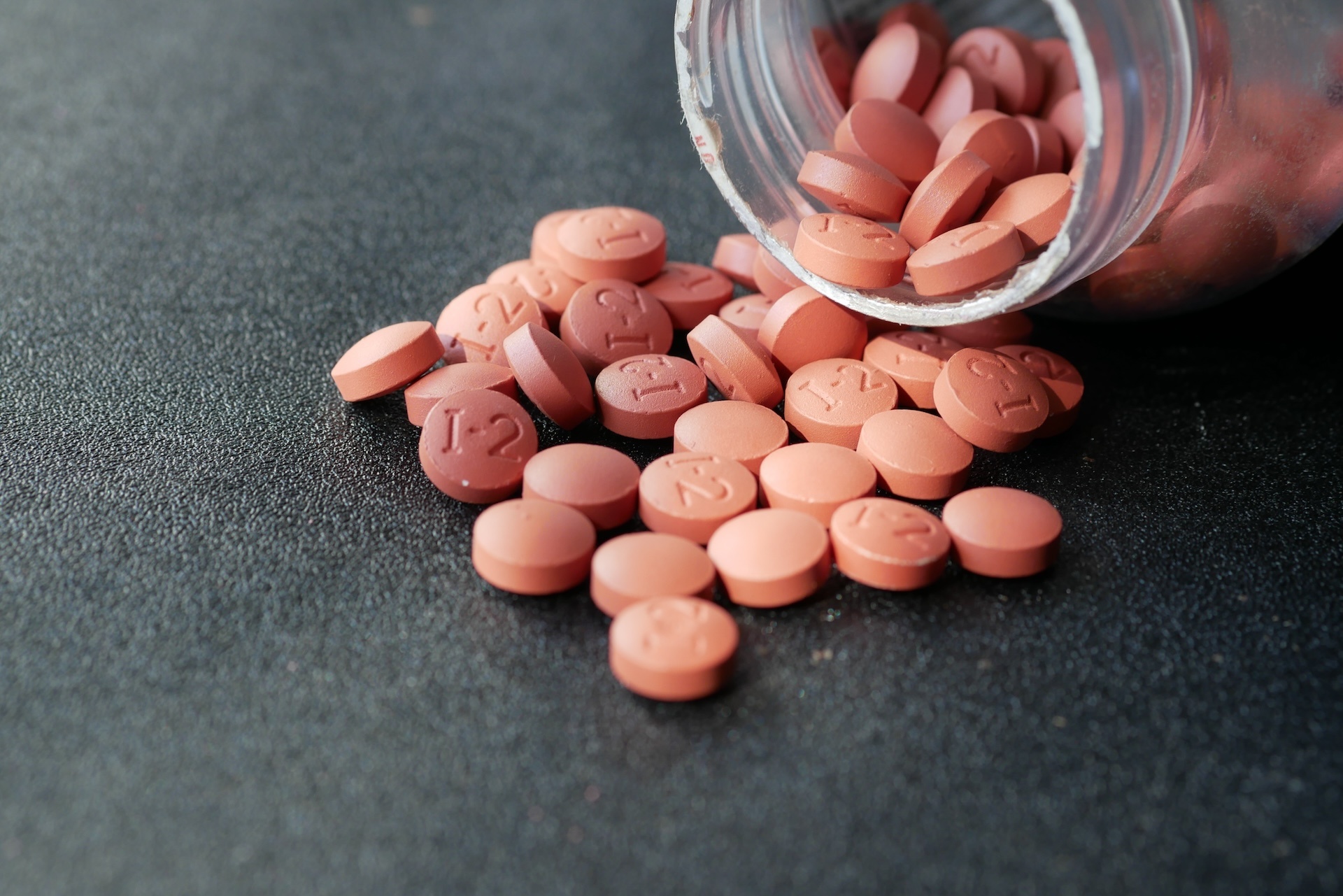Adderall Addiction Treatment Programs


Discover effective Adderall addiction treatment programs that address both addiction and mental health. Learn how recovery can lead to a balanced, better life.
Adderall addiction is a growing concern, impacting countless individuals seeking focus and energy in today’s fast-paced world. This stimulant, often prescribed for ADHD, can lead to dependency when misused, creating a challenging cycle that affects both physical and mental well-being.
Adderall addiction treatment programs offer a comprehensive path to recovery, combining evidence-based therapies with support for underlying mental health challenges. These programs provide a structured and compassionate environment where individuals can reclaim their lives and build a healthier future.
In this article, we’ll delve into the components of effective Adderall addiction treatment, the importance of mental health support, and how to choose the right path to recovery.
Understanding Adderall Addiction

Adderall addiction can develop subtly, often beginning with its intended use but escalating into dependency over time. Understanding how this stimulant affects the brain and recognizing the signs of addiction are crucial first steps in addressing the problem.
Mechanism of Action: How Adderall Affects the Brain
Adderall works by increasing the levels of dopamine and norepinephrine in the brain, neurotransmitters responsible for focus, energy, and alertness. While this can improve concentration for individuals with ADHD, the heightened dopamine release can create a sense of euphoria when misused, leading to dependency over time.
Signs and Symptoms of Addiction
Behavioral Indicators:
Compulsive need to obtain and use Adderall.
Neglect of personal and professional responsibilities.
Doctor shopping to acquire multiple prescriptions.
Physical Health Effects:
Insomnia and irregular sleep patterns.
Significant weight loss and appetite suppression.
Increased heart rate and potential cardiovascular strain.
Risk Factors Contributing to Addiction
Genetic Predisposition:
A family history of addiction can increase the likelihood of developing substance dependency, including Adderall.
Co-occurring Mental Health Disorders:
Conditions such as anxiety, depression, or bipolar disorder can drive individuals to misuse Adderall in an attempt to self-medicate, further complicating the recovery process.
Understanding these facets of Adderall addiction provides the foundation for effective treatment, ensuring that both the addiction and its root causes are addressed.
The Interplay Between Adderall Addiction and Mental Health

Adderall addiction doesn’t exist in isolation; it often intertwines with mental health struggles, creating a complex cycle that can feel impossible to break. If you or a loved one are navigating this dual challenge, understanding the connection between addiction and mental health is a crucial step toward recovery.
Common Co-Occurring Disorders
Many individuals battling Adderall addiction also face mental health conditions such as anxiety, depression, or bipolar disorder. For instance, you might have started using Adderall to cope with overwhelming stress or persistent feelings of inadequacy, only to find that the drug exacerbated these emotions over time.
Impact of Adderall Misuse on Mental Health
Exacerbation of Existing Conditions: Adderall misuse can intensify symptoms of anxiety and depression, making it harder to function daily or maintain relationships.
Induction of New Psychiatric Symptoms: Prolonged use can lead to paranoia, aggression, or severe mood swings, even in individuals without a prior history of mental health issues.
Challenges in Treating Dual Diagnoses
Addressing both Adderall addiction and mental health simultaneously requires a nuanced approach. For example, you might wonder if treating one issue before the other is possible, but recovery depends on integrating care for both. This dual focus ensures that underlying mental health conditions aren’t overlooked, reducing the risk of relapse and fostering lasting healing.
By acknowledging and addressing the interplay between Adderall addiction and mental health, you can begin to rebuild a life rooted in balance and well-being.
Are You Struggling with Mental Health or Addiction?
We Can Help. Call Us Now!
CALL: 877-839-1772
Comprehensive Adderal Addiction Treatment Approaches
Recovering from Adderall addiction is a journey that requires a comprehensive approach, addressing both the physical dependency and the underlying factors that fuel it. If you’re seeking a path to healing, understanding the components of effective treatment can provide clarity and hope.
Detoxification
Managing Withdrawal Symptoms: The first step in recovery is detoxing from Adderall, which can involve symptoms like fatigue, depression, and intense cravings. You may feel overwhelmed during this phase, but it’s important to know these symptoms are temporary and manageable with the right support.
Medical Supervision Importance: Detoxing under medical supervision ensures your safety and comfort, as healthcare professionals can monitor your progress and provide interventions as needed. This guidance helps you navigate the most challenging moments of withdrawal.
Behavioral Therapies

Cognitive Behavioral Therapy (CBT): Through CBT, you can identify and change negative thought patterns that drive addictive behaviors. For example, if you’ve relied on Adderall to feel productive or worthy, CBT can help reframe these beliefs and develop healthier coping strategies.
Contingency Management and Community Reinforcement Approaches: Reward-based therapies encourage positive behaviors, such as staying sober or attending therapy sessions, while community reinforcement builds a supportive network for long-term recovery.
Pharmacological Interventions
Current Status of Medication-Assisted Treatments: Unlike treatments for other substance addictions, there are no FDA-approved medications specifically for Adderall addiction. However, certain medications may be used to manage withdrawal symptoms or underlying mental health conditions during recovery.
Research on Potential Pharmacotherapies: Ongoing studies are exploring drugs that could specifically target stimulant addiction, offering hope for future treatment advancements.
Holistic and Supportive Therapies
Incorporating Physical Exercise: Exercise plays a vital role in recovery, helping to rebuild your body’s natural energy and dopamine levels. Activities like yoga or strength training not only improve your health but also provide a sense of accomplishment.
Nutritional Support and Lifestyle Changes: Proper nutrition supports brain healing and overall well-being during recovery. Simple lifestyle adjustments, such as maintaining a balanced diet and regular sleep schedule, can make a significant difference in your journey to sobriety.
By combining these evidence-based and supportive approaches, Adderall addiction treatment offers a well-rounded path to recovery, addressing your unique needs and setting you up for a healthier, more fulfilling future.
Personalized Treatment Plans at The Forge Recovery Center
At The Forge Recovery Center, we believe that every individual’s journey to recovery is unique. That’s why our personalized treatment plans are designed to meet your specific needs, addressing not only the addiction itself but also the underlying factors that contribute to it.
Assessment of Individual Needs and Co-Occurring Disorders
Our approach begins with a thorough assessment to understand your unique situation. We look at your physical health, mental well-being, and any co-occurring disorders such as anxiety or depression. This comprehensive evaluation ensures we address all aspects of your recovery journey.
Development of Tailored Recovery Strategies
Using the insights gained from your assessment, we create a recovery plan tailored to your goals and challenges. Whether you need specialized therapy, holistic approaches, or a combination of both, our team works with you to develop strategies that foster sustainable healing.
Integration of Family and Community Support Systems
We understand the vital role your loved ones play in your recovery. That’s why we actively involve family and community support systems in the healing process. From family counseling sessions to connecting you with peer support groups, we help build a network of care that supports your progress.
Continuous Monitoring and Adjustment of Treatment Plans
Recovery is an ongoing process, and we’re with you every step of the way. Our team continuously monitors your progress and adjusts your treatment plan as needed, ensuring that your evolving needs are met. This flexibility helps us maintain the momentum of your recovery while addressing any new challenges that arise.
At The Forge Recovery Center, our personalized treatment plans are more than just a roadmap—they’re a partnership. Together, we’ll help you reclaim your life and achieve lasting freedom from addiction.
Are You Struggling with Mental Health or Addiction?
We Can Help. Call Us Now!
CALL: 877-839-1772
Aftercare and Relapse Prevention
Recovery doesn’t end when treatment is completed; it’s a lifelong commitment to maintaining sobriety and building a healthier future. At The Forge Recovery Center, we emphasize aftercare and relapse prevention to ensure you have the support and tools needed to thrive beyond our program.
Importance of Ongoing Support Post-Treatment
After leaving a structured treatment environment, you may face new challenges and temptations in your daily life. Ongoing support helps bridge the gap between treatment and long-term recovery, providing you with a safety net as you adjust to your new normal.
Strategies for Maintaining Sobriety
Support Groups and Counseling: Joining support groups like NA (Narcotics Anonymous) or continuing individual counseling offers you a space to share your experiences and stay accountable. These connections remind you that you’re not alone in your journey and provide encouragement to keep moving forward.
Developing Coping Mechanisms: Learning healthy ways to cope with stress, anxiety, or emotional triggers is vital for sustaining sobriety. Techniques such as mindfulness, journaling, or engaging in hobbies can help you manage life’s ups and downs without turning to substances.
Addressing Potential Triggers and Stressors: Identifying and managing triggers is a key part of relapse prevention. At The Forge Recovery Center, we equip you with strategies to navigate high-risk situations, whether it’s avoiding environments linked to past substance use or creating a plan for handling unexpected stressors.
Recovery is a journey of progress, not perfection. With the right aftercare and relapse prevention strategies, you can maintain the strength and resilience needed to stay on the path to a healthier, addiction-free life. At The Forge Recovery Center, we’re here to support you every step of the way.
Adderall Controlling Your Life? Let Us Help You Take It Back
Recovery from Adderall addiction is about more than just quitting the drug; it’s about rebuilding your mental, emotional, and physical well-being. A balanced approach that addresses both addiction and underlying mental health challenges is essential for lasting change. At The Forge Recovery Center, we’re committed to providing personalized, comprehensive treatment plans to help you or your loved one reclaim a healthier, more fulfilling life. Don’t wait to take the first step—reach out to us today, and let us help you begin your journey to lasting recovery.
Are You Struggling with Mental Health or Addiction?
We Can Help. Call Us Now!
CALL: 877-839-1772





